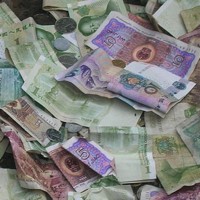BEIJING -- For China, diversification away from the dollar is a strategic priority that implies more than simply adjusting the currency composition of its foreign reserves. It also involves a wide range of measures aimed at side-stepping the U.S. currency and promoting the use of renminbi (RMB) in trade and investment. Nowhere is this shift more strategically significant than in commodities markets, where Beijing is building out the physical and financial infrastructure required to establish the RMB as the dominant currency for commodities in Asia.
China's efforts to diversify away from the dollar have been multifaceted. It is buying proportionately less U.S. debt while increasing reserves of other currencies, such as the Japanese yen. It has widened the use of RMB in international trade and sanctioned more RMB-denominated investment into China. Beijing and Tokyo recently launched direct yen-yuan trading, meaning counterparties in Asia's two largest economies are no longer forced to interact via a third currency, hitherto invariably the dollar.
Beijing has also pushed ahead with its policy of “RMB diplomacy,” seeking opportunities for foreign exchange swaps or trade and investment deals with selected trading partners across the globe, ranging from Iceland and Australia to Brazil and the United Arab Emirates. Meanwhile, London has been identified as the first offshore yuan trading center outside Asia. Each of these moves can be seen as a foundation stone for more global exchange of yuan.

